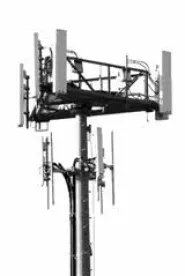NPRM on Wireless License Renewal
The FCC released a Second Report and Order and Further Notice of Proposed Rulemaking establishing harmonized rules across several wireless radio services for license renewal standards and revised construction requirements for partitioned geographic licenses, among other rule changes. The Further Notice of Proposed Rulemaking seeks comments on how the Commission should encourage and increase investment in wireless networks, heighten access to spectrum resources, and promote continuous deployment of mobile services in rural America. Comments are due 30 days after publication in the Federal Register and Reply Comments are due 60 days after publication in the Federal Register.
911 Reliability Certifications Due
The FCC’s Public Safety and Homeland Security Bureau announced in a Public Notice last week that the 911 Reliability Certification System is open for filing of annual reliability certifications, which are due on October 15, 2017. Covered 911 Service Providers are required to annually certify compliance with three substantive requirements: 1) 911 circuit diversity; 2) central office backup power, and 3) diverse network monitoring.
FCC Inquires Whether Mobile Broadband is Sufficient for Unserved Rural Communities
Last week, the FCC released its Thirteenth Section 706 Report Notice of Inquiry looking to assess the extent to which “advanced telecommunications capability”—high speed Internet access service (broadband)—is being made available to all Americans in a reasonable and timely fashion. Prior Section 706 Reports set benchmark transmission speeds for fixed broadband services, presently 25 Mbps downstream/3 Mbps upstream with no benchmark for mobile broadband, but viewing mobile and fixed broadband as distinct services. The striking aspect of this NOI is that it requests comment “on whether some form of advanced telecommunications capability, be it fixed or mobile, is being deployed to all Americans in a reasonably and timely fashion.” This raises the possibility the FCC may conclude mobile broadband, by itself, is sufficient to meet the broadband requirements in unserved rural communities. Comments are due on September 7; Reply Comments on September 22.
FCC Enforcement Advisory
The FCC’s Enforcement Bureau issued an Enforcement Advisory last week reminding the civil aviation community that the aviation frequency 121.500 MHz is reserved for emergency use only. The FCC has been coordinating with the Federal Aviation Administration (FAA) to investigate repeated “misuse of, and harmful interference to,” the frequency 121.500 MHz. The FCC stated that failure to comply its rules regarding use of the frequency could result in substantial fines, the seizure of equipment, and criminal sanctions for ongoing violations.
CVAA Rule Change
The FCC’s recent Report and Order expanding the availability of video described programming on “included networks” carried by covered broadcast stations or multichannel video programming distributors (MVPD) was published in the Federal Register last week. Video description makes video programming accessible to individuals who are blind or visually impaired. Under the FCC’s current video description rules, commercial broadcast television stations affiliated with ABC, CBS, Fox, or NBC and located in the top 60 television markets must provide 50 hours per calendar quarter of video described prime time or children’s programming. Under the new rules, covered broadcast stations and MVPD’s must increase the amount of described programming to 87.5 hours per quarter beginning on July 1, 2018.







 />i
/>i


